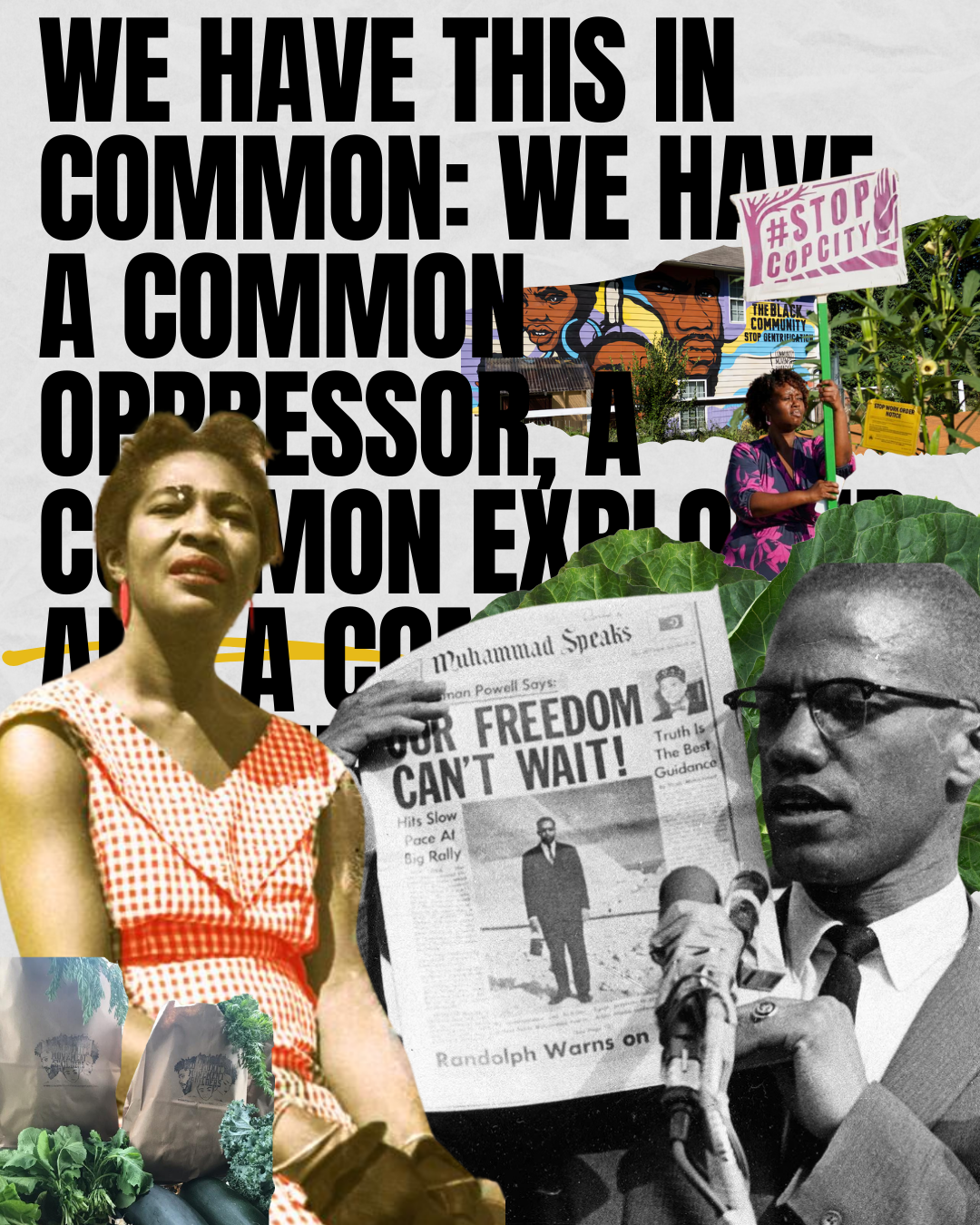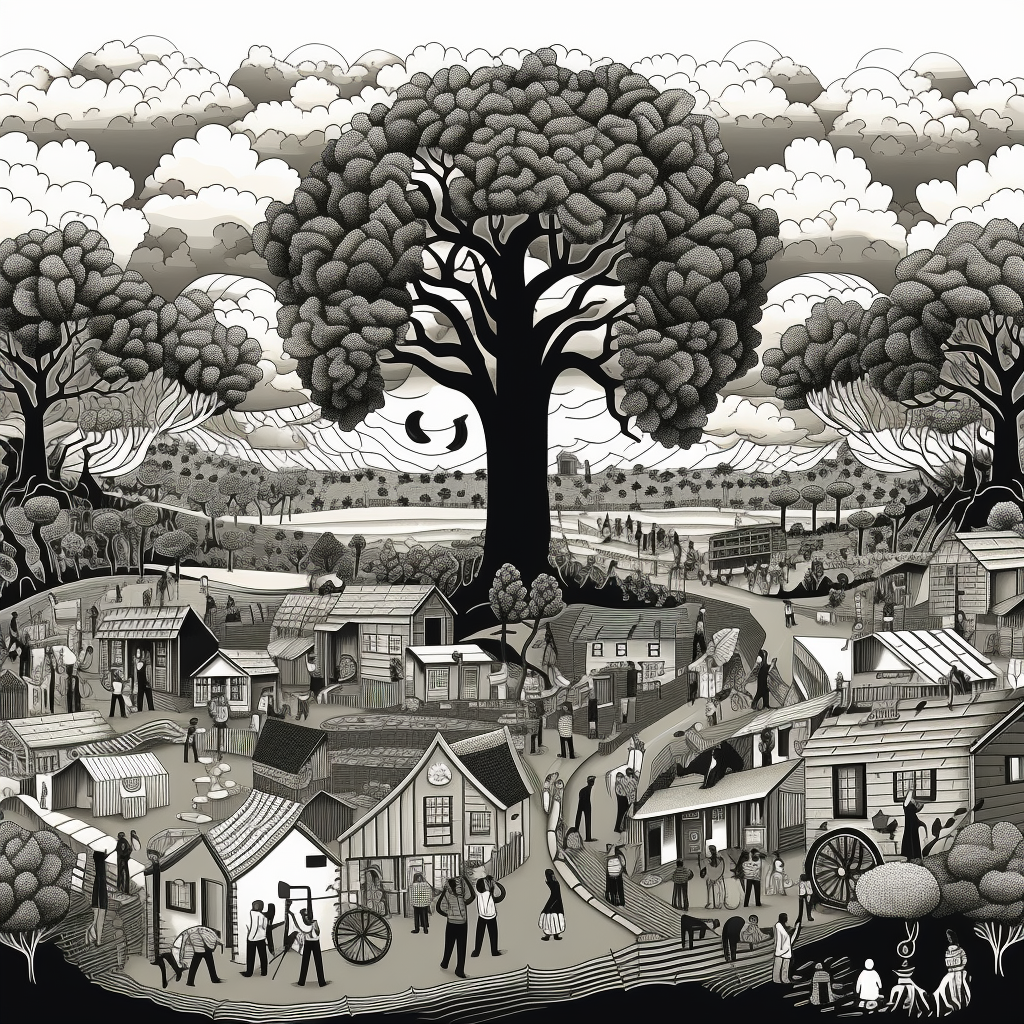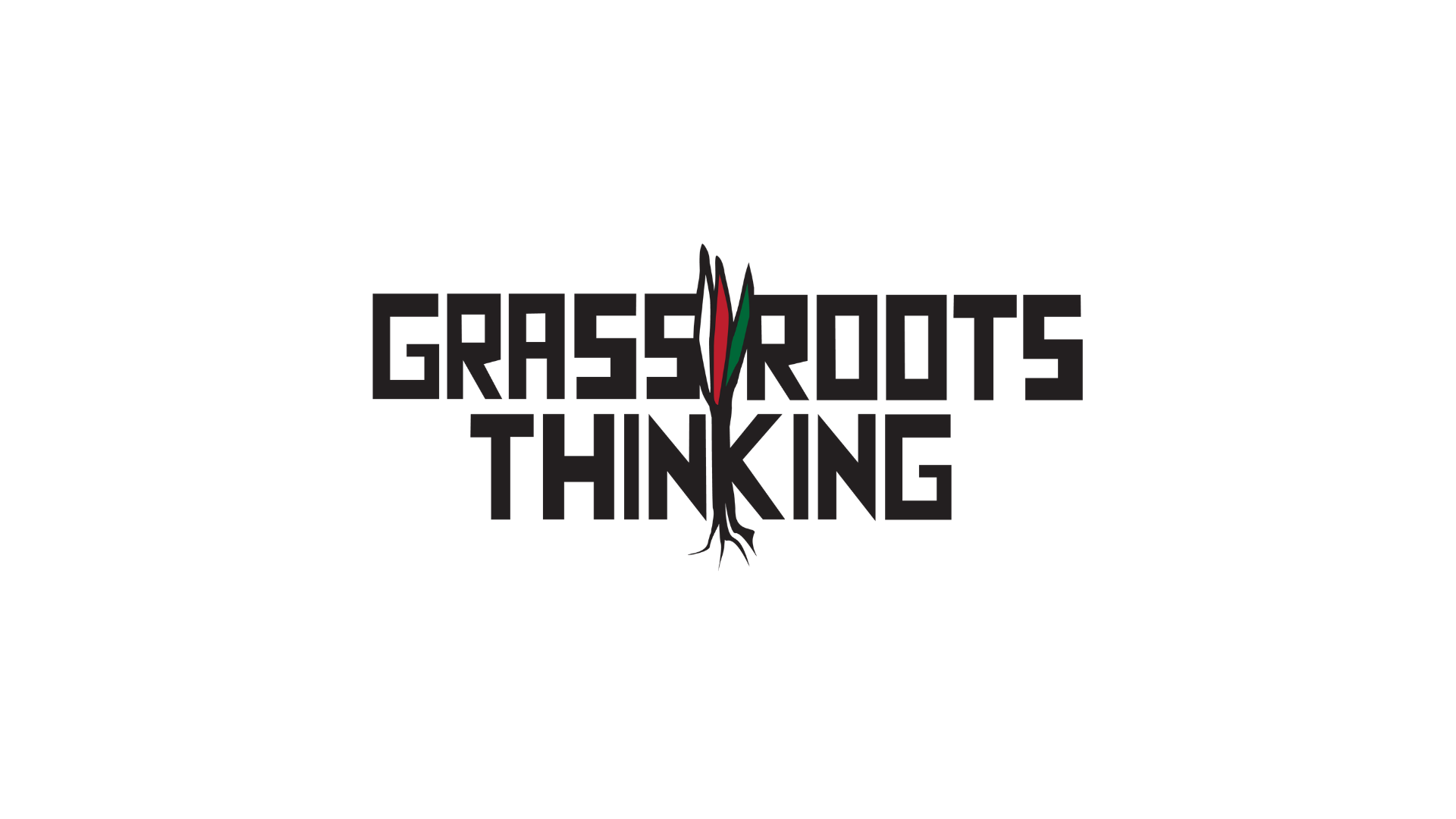“I could blend the acceptance of the supernatural and a profound rootedness in the real world at the same time with neither taking precedence over the other. It is indicative of the cosmology, the way in which Black people looked at the world. We are very practical people, very down-to-earth, even shrewd people. But within that practicality we also accepted what I suppose could be called superstition and magic, which is another way of knowing things. But to blend those two worlds together at the same time was enhancing, not limiting. And some of those things were “discredited knowledge” that Black people had; discredited only because Black people were discredited therefore what they knew was “discredited.” And also because the press toward upward social mobility would mean to get as far away from that kind of knowledge as possible. That kind of knowledge has a very strong place in my work.“
– Toni Morrison “Rootedness: The Ancestor as Foundation”
“Now, who are your people?” – Ms. Ella Baker
I ask you to bear with me as we briefly explore what lies between or within the gaps and intersections of Black liberation, urban planning, and local economic development – the latter two are forces and phenomena that dictate so much of our lived experiences and local structural realities, the former is an outcome, a movement, a principle, an ethic. For now, I explore a response to the intellectual conditions that are too Eurocentric, too capitalistic, and too imperialist-dominated to take us to our next phase where Black economies come from the grassroots and contribute to liberation.
To respond and move toward a place of Black grassroots economies. We honor Toni Morrison’s ‘rootedness,’ an ongoing search for Black forms of writing and art that consciously connect to ancestors and blend an “acceptance of the supernatural and a profound rootedness in the real world at the same time” (Morrison, 1984). This is a call back to the way that African people, Black people, see and have long seen the world. Moreover, this rootedness combats the Western, white supremacist forms of thought that encourage a clean break from the past, the discarding of tradition and ancestral knowledge as primitive, in the search for infinite ‘progress’ and accumulation. Morrison reminds us that “if we don’t keep in touch with the ancestor that, we are, in fact, lost. The point of the books is that it is our job. When you kill the ancestor, you kill yourself. I want to point out the dangers, to show that nice things don’t always happen to the totally self-reliant if there is no conscious historical connection” (Morrison, 1984).
Killing our ancestors and the knowledge, connection, and politics that come with their legacies and material inheritances serves none of us except for the white supremacist, capitalist, imperialist order. It is this order that has convinced far too many of us that salvation or ‘development’ will come from the tools of a colonial order established to deny freedom and humanity to Africans and colonized people globally. While I do not claim to have the blueprint of a grassroots pathway to liberation, embracing a foundation rooted in our ancestors, their lands, our current material conditions and a self-determinative future for our children and children’s children can only open up more possibilities than the status quo. In the same vein as Morrison, we might replace the dictates of Western thought and paradigms of development and form our foundation around the call of revolutionary leader and PAIGC co-founder Amilcar Cabral, “[w]e must act as if we answer to, and only answer to, our Ancestors, our children and the unborn” (Cabral, 1970). Imagine if we cultivated an ethic and approach of urban planning and economic practice connected to this ancestral foundation and committed to grassroots, liberatory forms of being, relating, and building.
This foundation and approach centers on people. More specifically, addressing a lack of focus on people within ‘urban planning’ and ‘local economic development’ – at least the global majority of people. And yet, the people must drive and be at the center of our work. This celebrates place. For me, I am motivated by the places I’ve personally called home, and the future prospect of resting my head in a liberated place – a home where all of us are free. This appreciates space: the space between African (Black) peoples throughout the world, that may be full of longing, pain, and confusion – but also joy, spirit, culture, love, and beauty. This respects time: the moment we find ourselves demands that we act and take serious and disciplined collective action against the war on the people, the places, and the spaces of this Earth. We cannot allow ourselves to accept the genocides, imperialist interventions, dehumanization, destructions, and desecrations of communities as normal. The time is now to move beyond individualism, to struggle collectively for justice and liberation.
What might this have to do with urban planning and economic development? A great deal. I was trained in ‘development’ and ‘planning’ within ‘the academy’ (western research universities), a space not rooted in the people, certainly not our people. The call for rootedness leads me to Walter Rodney’s (1969) demand that “the black intellectual, the black academic, must attach himself [sic] to the activity of the black masses” (Rodney, 1969) in order to break from the captivity of an academy in service of white power and white cultural imperialism. For me, for us, ‘rootedness’ in our ancestors, people, environments, and movements might reveal economic forms and relationships that support the liberation of all African (Black) peoples.
If we want to develop our people’s capacities and livelihoods as well as plan for our collective futures, we must consider our economies – how we get what we want or need, how we distribute it among ourselves, and how we relate to others and to our world. If we care about people, we must make space and time for the people. More importantly, the people must control places and spaces for themselves so we might have the opportunity to connect to our communal ancestral legacies and build toward liberatory futures. We might ground this community control by embracing Morrison’s rootedness and contributing to what Carol Boyce Davies (2021) calls a “rooted exchange of knowledge between the academy and the community” (Davies, 2021) so that the knowledge generated in this relationship might “serve the liberation of our communities from the oppressive European histories and epistemologies,” while permitting us “re-territorialize” our understandings of the world (Davies, 2021).
Through such a process, we can explore and utilize knowledge of our ancestors, peoples, environments, movements, and more. There are many possibilities and revelations that are waiting to be explored, but we must first be rooted in healthy soil, a re-territorialized Earth. In working toward such revelations, we might escape the academy, vampiric Western norms, and imperialist notions of ‘development’ and planning; root ourselves in a new foundation; unite with the masses of the world; and get educated, agitated, and organized in this struggle for liberation.
References
Morrison (1984) “Rootedness: The Ancestor as Foundation.” in Black Women Writers (1950-1980): A Critical Evaluation. Ed Mari Evans. DoubleDay, New York.
Cabral, Amilcar (1970) Revolution in Guinea: Selected Texts. Monthly Review Press.
Rodney (1969) “The Groundings with My Brothers” in The Groundings with My Brothers. (1969 [2021]). Verso, New York.

(MANUALLY) Replace this with bookmarks for pieces in sequential order





